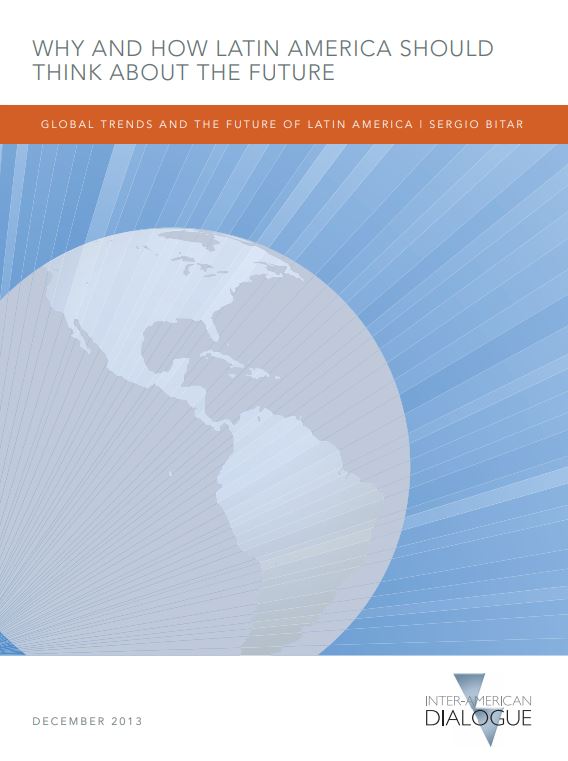Bolivia & the Global Fight Against Climate Change
In the past year, the Bolivian government has emerged as an outspoken critic of climate change policies.
This post is also available in: Español
Over the past decade, many Latin American governments have made significant strides in developing domestic policies that have succeeded in reducing poverty and strengthening democratic institutions. Yet the impact of profound transformations in the global economy, climate change, and new information and communication technologies makes it clear that the region’s future will be inextricably connected to developments taking place beyond the borders of individual nations.
While a number of governments, businesses, and civil society organizations in Europe, the United States, and Asia are addressing this new reality by carrying out studies of long-term political, economic, social, and security scenarios to inform policy decisions, comparable efforts in Latin America lag behind, as the region’s policymakers remain primarily focused on short-term domestic agendas. Too few institutions in the region are carrying out the data collection, research, or analysis needed to understand critical trends at the global level, and incorporate them into policy thinking.
Addressing such a concern can greatly improve the outlook for the region’s economic, social, and environmental welfare and security. Against this backdrop, in 2011, with support of the Inter-American Development Bank, the Inter-American Dialogue launched its Long-term Global Trends Initiative. The program seeks to foster the practice and culture of long-term strategic thinking in Latin America and build the capacity of regional experts and institutions to carry out policy-relevant, forward-looking studies.
This report, written by Sergio Bitar, a Dialogue senior fellow who directs the initiative, provides an original and comprehensive framework for achieving these objectives. Drawing on decades of policy experience in roles ranging from senator to minister in three different presidential administrations in Chile, Bitar makes a compelling argument for long-term global thinking in Latin America and reviews six key global trends to which policymakers should pay particular attention. He concludes by proposing steps that Latin America can take to confront challenges and take advantage of opportunities in five key areas: democratic governance, economic competitiveness, social inclusion, geopolitics, and sustainable development.
We hope that this report will help spur constructive debate about Latin America’s future among policymakers, business leaders, and members of civil society. We are grateful to the Inter-American Development Bank for its crucial support of this initiative.
In the past year, the Bolivian government has emerged as an outspoken critic of climate change policies.
As global temperatures continue to rise with the global community stalled on any way to stop them, countries must prepare to adapt to increasingly volatile environmental conditions.
The ongoing and unprecedented speed of global change demands a new responsibility from Latin American countries.
